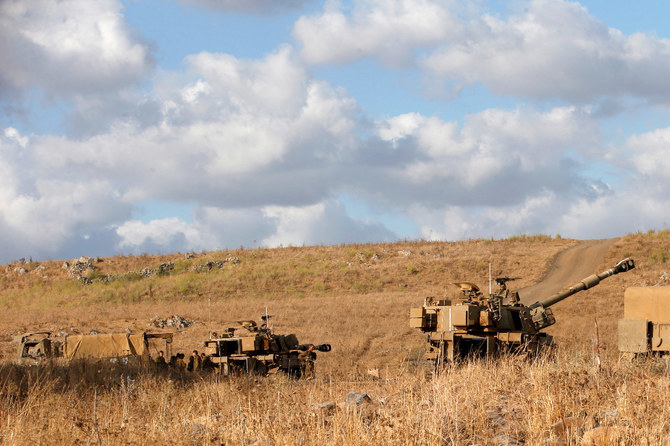
The Israeli Air Force last week launched a military airstrike on Damascus, in the Kafr Souseh district, which is considered a security square for the Syrian intelligence services.
Unusually, the attack took place in the center of the Syrian capital, as Israel has previously attacked military targets belonging to Iranian militias outside cities or residential areas. This area is considered a high-security surveillance zone and is also home to many Iranian security forces.
This strike seems to have served more than one purpose. It was an attack on what could be described as a logistics headquarters, a financial center and a fortified meeting hall of leaders of Iranian militias that are classified as terrorist groups.
According to local sources, the targeted building is owned by businessman Fadel Balawi, owner of the Al-Fadel Money Transfer Company, which is linked to the Lebanese Hezbollah militia. The strike mainly affected the building’s underground rooms, which were designed to avoid military attacks, but this strike was more severe than expected. The targeted building is located behind an Iranian school, indicating the size of the Iranian presence in the area.
In the same neighborhood, Imad Mughniyeh, the top military commander of the pro-Iranian Hezbollah, was killed in a 2008 bomb attack.
This Israeli attack appears to have coincided with a secret meeting between Iranian Islamic Revolutionary Guard Corps technical experts and Syrian regime military engineers to discuss Iran’s drone and guided missile production program in Syria. If the military strike achieved its goal of eliminating the Iranian leadership overseeing the IRGC’s secret rocket and armed drone production program, it would be an unexpected blow to Iran’s unmanned aerial vehicle ambitions.
Local sources indicate that the strike killed Hezbollah leader Ali Assaf, who heads the military faction in Syria that Qassem Soleimani helped establish six years ago. This faction possesses missiles transported from Iran and stored in various locations, including residential areas in Syria.
Israel believes that Iran took advantage of the dire situation in Syria following this month’s earthquake to transfer electronic air defense systems as part of humanitarian aid, prompting Israel to attack these systems.
The Israeli bombardment had a total of four targets across Syria. The first was the meeting headquarters of Unit 840, which is affiliated with Iran’s Quds Force, near the Intelligence Division building in Kafr Souseh. The second was a warehouse at the Jamal Plaza Hotel in the Sayyidah Zaynab area close to Damascus. The third was a radar in Tal Al-Masih in As-Suwayda province. And the fourth was an air defense battalion in Al-Kiswah.
Israel appears to be convinced that Iran wants to turn Syria into a military base on its borders.
Ghassan Ibrahim
Based on the magnitude and accuracy of the Israeli bombing, the Syrian Army ultimately failed to counter the attack. The Syrian regime tried to claim that the strikes were carried out using Israeli missiles, but Russian sources presented a different version. They said four Israeli F-16 tactical fighter jets launched the strikes.
Israel appears to be convinced that Iran wants to turn Syria into a military base on its borders. Because of this belief, Israel is ready to bomb these Iranian targets at any cost. Moreover, it seems that Israel has the support of Western countries when carrying out such strikes, while Russia does not oppose it either.
There is a common concern among Israel and its Western allies about the Iranian program to produce military drones. Iran’s use of drones in Syria could threaten the fragile stability and drag Syria into an unexpected new war.
Last week, an international coalition base in the Al-Tanf region of eastern Syria was attacked by Iranian drones. Iranian militias most likely carried out this attack. A US Army official announced that American forces had shot down a drone.
There is a tendency for Western countries and Israel to respond to Iran’s use of armed drones in Syria. This military confrontation could escalate into a war Syria has no way of either joining or avoiding.
Oddly enough, the Syrian regime is unaware of the gravity of the situation, in which it has become hostage to the conflict between Iran and Israel. This situation threatens the security of the Syrian people and destroys all paths to peace and stability.
The Syrian regime’s deceptive policies have turned the country into a hub that attracts terrorist groups from all quarters, especially Iranian militias that are classified as terrorist organizations in most countries.
Iran has offered nothing to help Syria. On the contrary, it has put Syria in permanent danger because of its ambitions, which the Syrians do not share or even sympathize with.
Will the Syrian regime understand that Iran’s presence is dangerous for Syria and an obstacle to the building of any form of lasting stability? Iranian militias in Syria will lead the country into endless conflict, which means more Israeli airstrikes on Iranian targets.
• Ghassan Ibrahim is a British-Syrian journalist and researcher on issues regarding the Middle East, most notably Turkiye, Syria and Iran. He can be reached at www.ghassanibrahim.com.












